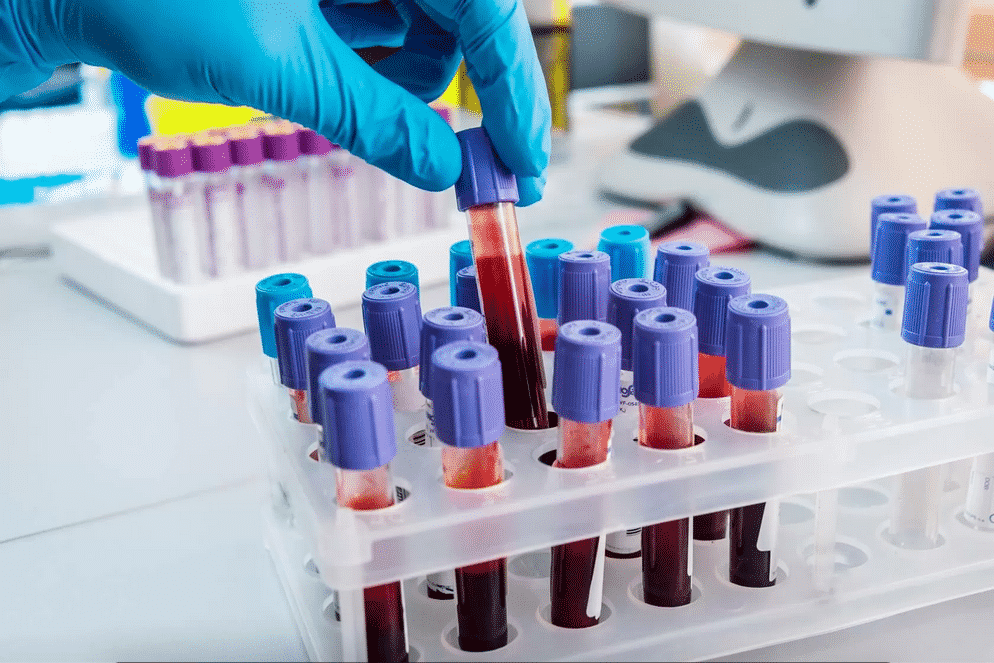We must carefully monitor our health as we grow older. The early detection of diseases can be helpful to prevent a handful of looming problems in the future.
Taking blood tests help doctors in understanding your body. They can check whether your organs are functioning well and it helps them diagnose diseases like cancer, HIV, anemia and heart disease. Blood tests also help in assessing how well your blood is clotting and check if the medicines you are taking are working well.
Here are ten essential blood tests that need to be done regularly to ensure that you’ll be in good shape.
1. Complete Blood Count (CBC)
The CBC is used to check the levels of the ten different components of primary cells in your body, including white blood cells, red blood cells, platelets, hemoglobin, and hematocrit.
If you have abnormal levels of these components, it might signify that you have nutritional deficiencies, iron deficiency, bone marrow issues, tissue inflammation, infection, heart conditions, or cancer.
2. Basic Metabolic Panel (BMP)
This blood tests measure blood compounds such as electrolytes, calcium, glucose, sodium, potassium, carbon dioxide, chloride, blood urea nitrogen, and creatinine. You’ll be required to do fasting for eight hours before the test.
Abnormal results could indicate possible kidney disease, diabetes, or hormone imbalance.
3. Complete Metabolic Panel (CMP)
The CMP includes all compounds tested in the BMP, but it also looks into additional proteins and substances that are related to your liver.
These substances include albumin, total protein, alkaline phosphatase, alanine aminotransferase, aspartate aminotransferase, and bilirubin.
4. Lipid Panel
The Lipid Panel test is used to check your high-density lipoprotein (HDL), also known as good cholesterol and your low-density lipoprotein (LDL), also known as bad cholesterol.
When you have a high amount of bad cholesterol, this could lead to a plaque in your arteries, thus increasing the risk of heart disease. You have to fast for 8 hours before taking this test.
5. Thyroid Panel
A thyroid panel is used to check how well your thyroid is functioning. Specifically, it checks your Triiodothyronine, T3 resin uptake (RU), Thyroxine (T4), and your thyroid-stimulating hormone (TSH).
Abnormal levels of these substances could mean numerous conditions, so additional tests will be required.
6. Enzyme Markers
Some of the standard enzyme tests is the Creatine Phosphokinase (CPK-1), CPK-2 (CK-MB), CPK-3, and troponin. Enzymes are proteins in your body that aid in chemical processes like breaking down food and blood clotting.
7. Sexually Transmitted Disease Test
Diseases like chlamydia, gonorrhea, herpes, HIV, and syphilis can be detected through a blood test. The blood tests often come with urine samples or swabs of infected tissue so that the diagnosis will be more accurate.
8. Coagulation Panel
This blood test measures how well your blood clots and how long does it take for it does it.
Clotting is a critical process that helps you stop bleeding after you get a cut or a wound. However, blood clot in a vein or artery can be fatal because it blocks the blood going to your brain, heart, or lungs.
9. DHEA-sulfate Serum Test
This test measures whether the dehydroepiandrosterone (DHEA) from your adrenaline gland is too high or too low.
DHEA deficiency in men can be caused by type 2 diabetes, kidney disease, anorexia nervosa, and AIDS. High levels of DHEA in men and women may be caused by cancer or tumor in the adrenal glands or abnormal genital development.
10. C-reactive Protein Test
C-reactive protein (CRP) is excreted by your liver when tissues in your body are experiencing inflammation. Some of the causes of inflammation include artery inflammation, infection, inflammatory bowel disease (IBD), heart disease, rheumatoid arthritis, lupus, or cancer.
For any abnormal results, the doctor will require to follow up examinations in the case of abnormal levels so he/she can come up with a diagnosis. These blood tests can be early detection of an underlying condition, so it pays to take these tests regularly.

